Speech by Romanian Minister of Foreign Affairs, Catalin Predoiu, to CEI Meeting
13 Nov, 2009 01:59
1790
"Supporting the Common European Future. Addressing current challenges"
- Bucharest, 12 November 2009 -
Your Excellencies,
I am honored to have the opportunity to address the meeting of the Foreign Ministers of the Central European Initiative (CEI), in my capacity of Chairman. Let me start by thanking all distinguished participants to this meeting and welcome to Bucharest.
Distinguished guests,
It is a great honor for Romania to host this important and equally historic event for CEI and for its Member States. This meeting offers the opportunity to asses the achievements of CEI Member States and to look forward to new priorities for our Initiative.
Twenty years have passed since the fall of communism. The reunification of Europe opened up an era of new challenges. Other transformations have taken longer to exert effects. Some hopes and concerns about the new conditions had been expressed at the early stages of the transformation and were later confirmed. Other phenomena became visible and have prevailed in the recent past only. In the long run, most probably, the fundamental advances and progresses, the gains and strengths, will prevail in the historical memory of the post-communist countries.
Since the CEI was the witness of the deep transformation of many countries represented here, it is equally our duty to shape up this Initiative for what lies ahead. The CEI could play a more prominent role in part in providing the necessary pre-requisites for catalyzing further respect for human rights, rule of law, democratization and market economy.
Many of the Central and all Eastern Europe states have made enormous progress - when compared to its own conditions in and post 1989. An overview of the ups and downs of the past two decades nevertheless tells us that the position of our political culture has improved remarkably.
We have quite rapidly succeeded in eliminating the structures and mechanisms of the totalitarian regimes and in establishing the basic conditions of the European democracy and functional market economy. The past decade was challenging but equally rewarding for all of us. It gave us many important insights into the how crucial freedom is and how fundamental is respect for human rights.
Our transition went at the same pace with the changing Europe. Europe is undergoing massive changes. Cooperation of independent countries aimed at removing barriers for the movement of people, goods and free flow of ideas has been and is still being- slowly but surely - becoming an immediate reality for our citizens. We started our reforms in the era of the European Community, and some of us finalized them in the era of the European Union. Some are expected to do so in the era of the Lisbon Treaty.
Freedom of movement represents an important aim for our partner CEI states which are non-EU members. We welcome especially the perspective of liberalizing the visa regime, beginning of 2010, for Macedonia, Montenegro and Serbia. We would like to see Albania and Bosnia and Herzegovina benefitting from the same measure by mid-2010. Adopting visa-free travel for Western Balkans is a clear signal the EU door remains open for this region. Including these countries in the visa "white-list" derives from their own performance and is also a major incentive to go on with the necessary reforms needed for getting closer to EU and NATO.
Ladies and Gentlemen,
We welcome the recent agreement signed in Stockholm between Croatia and Slovenia on the border issue. We do hope that a solution on the border issue will be soon found.
We are glad that Brussels has underlined what Romania has been supporting for a long time: the implementation, also by the EU, of the Interim Agreement (IA) with Serbia. Unfreezing, as soon as possible, this Agreement would support the efforts of the Serbian government to tackle the consequences of the current economic crisis.
We strongly support the issuing of the avis by the European Commission for Montenegro and Albania's accession requests. We welcome the recent joint EU-US initiative and we hope that domestic developments in Bosnia and Herzegovina will be positive, thus triggering clear advancement of this country towards the EU.
An issue of particular importance is the concretization of the European aspirations of the Republic of Moldova, undoubtedly a rightful and deserved accomplishment. The true scope and ambitions that both the EU and the R. of Moldova harbor should be heralded by starting very soon the negotiations for an Association Agreement and by talks on further visa facilitation measures leading, in the long term, to visa free travel regime.
Ukraine's active participation in different formats of regional cooperation, including the CEI is important. Next year will bring opportunities for Ukraine to continue on the reform path, with the aim to overcome the economic crisis as a high priority and to get closer to its European and Euro-Atlantic aims.
Recent progress of Belarus in meeting the EU' requirements are commendable and we strongly encourage Minsk to pursue reforms which are crucial in the EU relation with this country.
Maintaining a credible EU perspective for the whole region is essential. To this end, the enlargement agenda should be moved forward and the requests for candidate status should be approached with determination. Advancing towards membership status must be based on solid progress in fulfilling the accession criteria.
Ladies and gentlemen,
During its Presidency, Romania has constantly supported the cross-border cooperation among CEI states as an instrumental exercise for promoting the common European and Euro-Atlantic interests and aspirations. At the same time, the experience acquired has demonstrated that many political, economic, and cultural issues can be better approached and settled in a framework such as the CEI.
Romania pays particular attention to the EU Strategy for the Danube region, an idea the EU embraced following Romanian-Austrian joint initiative. Therefore, the decision of the June European Council to ask the European Commission to elaborate a Strategy by the end of 2010 is timely.
The future EU Strategy for the Danube Region will facilitate the efforts of the riparian EU Member States in achieving the social, economic cohesion. We are convinced that this EU Strategy has the capacity to not only significantly contribute to enhancing the cooperation in the region, but also to become an effective connector within Europe and towards its strategic outpost of the Black Sea region. We count on the common will of the riparian countries and on the European Commission's strong commitment to engage themselves, in the months to come, in a fruitful dialogue in the process of elaborating this future EU Strategy.
Ladies and Gentlemen,
The CEI has been, since its inception, an active participant in the historical changes in Europe. It promoted the idea of a Europe embracing common values: democracy, freedom, respect for human rights and tolerance. It has also played an important role in facilitating the economic development, contributing, with its instruments, to the liberalization of the economic system and helped achieving the status of functional market economy. Among other regional actors, it has been an important tool in strengthening pro-European orientation of the countries, as well as establishing a closer link between EU and non-EU countries.
I would like to take this opportunity to express in the name of Romanian Presidency our appreciation to all the partners involved in implementing the projects financed by CEI. By its specific projects, CEI facilitates increased people-to-people contacts and, at the same time, contributes indirectly to the development of labor force network.
The ongoing development process requires new guidelines and orientations, firmly based on the European principles and values. We indeed consider necessary to continue adapting the Initiative to current challenges, thus enabling it to serve the common purpose of its members. The traditional role of the CEI as a forum of political dialogue should be improved in order to strengthen co-operation among the CEI Member States. In this regard, cooperating within the CEI will lead to supporting the efforts of the aspirants for EU integration. Therefore, the CEI could indeed project its existing role into the future and enhance its capacity to reinforce regional stability.
I would like to also stress that the Initiative could be fit to provide, according to the resources its members will deem necessary to enable with, a kind of protective system particularly in times of economic hardship.
We now have to promote CEI activities, adapted in accordance with the New CEI Plan of Actions, with regard to the new political, social and environmental realities of the region.
Ladies and Gentlemen,
I express my confidence that the CEI Member States can work together to overcome the current economic problems. It goes without saying that, particularly during these moments of economic hardship caused by the international financial crisis, special attention needs to be paid to consolidating cross-border and transnational cooperation projects. Such an increased attention will boost economic efficiency.
Moreover, our cooperation will clearly be a facilitator for the non-EU member countries on achieving their goals on the European path.
In fulfilling our specific aims, I do hope that we will adopt today the decision to increase with 20% the CEI Cooperation Fund. In responding to the future outlook of the Initiative, our Heads of Government will adopt at their meeting tomorrow important decisions for our Initiative: the CEI Plan of Action for 2010-2012 and the increasing of the CEI Cooperation Fund for 2010.
I would also like to thank the Secretary General, Ambassador Ago, for his support, to wish success to the incoming Secretary General, Ambassador Pfantzelter and the best of luck to our Montenegrin partners and reassure them of our continuous support.
Thank you for your attention.
Ti-a placut articolul?
Articole asemanatoare

Un celebru și îndrăgit actor s-a stins din viață. "A fost cea mai bună, cea mai spirituală şi iubitoare fiinţă umană"
08 May 2024 1053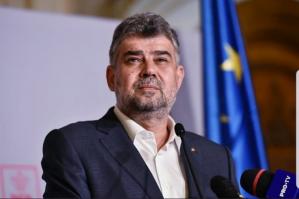
Investiții la Marea Neagră Premierul Marcel Ciolacu a discutat cu comisarul european pentru Parteneriate Internaționale
25 Apr 2024 394Guvernul RomânieiÎntrevederea dintre premierul Marcel Ciolacu și comisarul european pentru Parteneriate Internaționale, Jutta Urpilainen
25 Apr 2024 312
Doliu în cinematografia mondială Un actor cunoscut pentru rolul său dintr-un serial pe Netflix s-a stins din viață la doar 27 de ani
31 Mar 2024 1884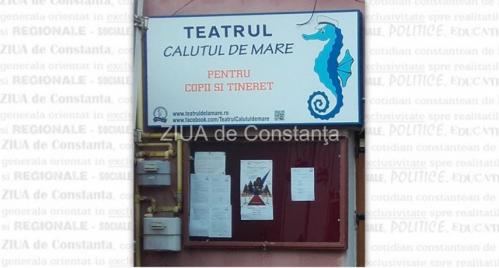
Teatrul pentru Copii și Tineret Constanța „Căluțul de Mare” Constanța face angajări!
22 Mar 2024 1043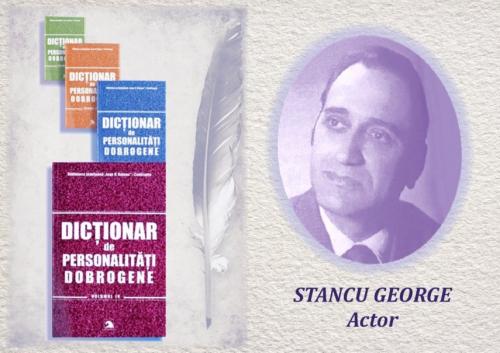
Originar din Constanța George Stancu și cele peste două decenii în care s-a dovedit a fi „un actor de echipă” la Teatrul de Stat Constanța
07 Mar 2024 715
In memoriam Toma Caragiu, fostul actor al Teatrului de Stat Constanța, plecat prea repede din această lume
03 Mar 2024 1143
Pentru al patrulea an la rând Actorii Ramona Niculae și Ștefan Mihai, nominalizații Teatrului de Stat Constanța la Gala Premiilor UNITER
28 Feb 2024 997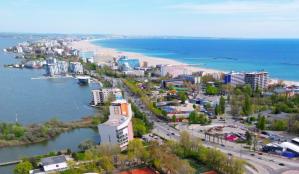
Spectacol estival pentru copii Firma lui Gabriel Soare bate palma cu Organizația de Management al Destinației Mamaia-Constanța
22 Feb 2024 819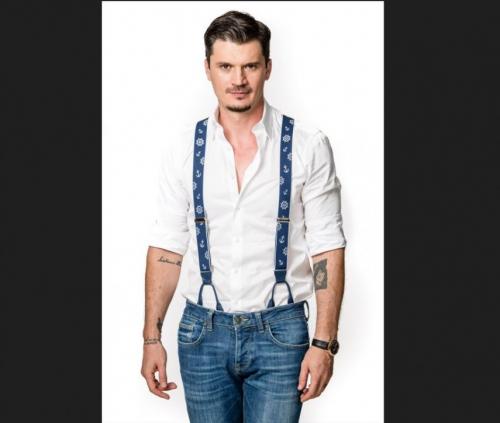
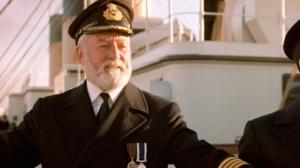


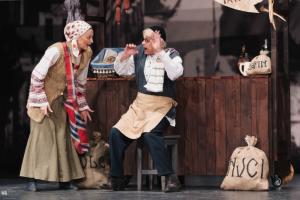
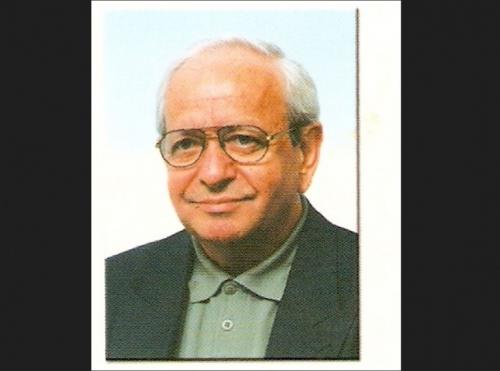
Adauga un comentariu
Nume:
Email:
Comentariu*: